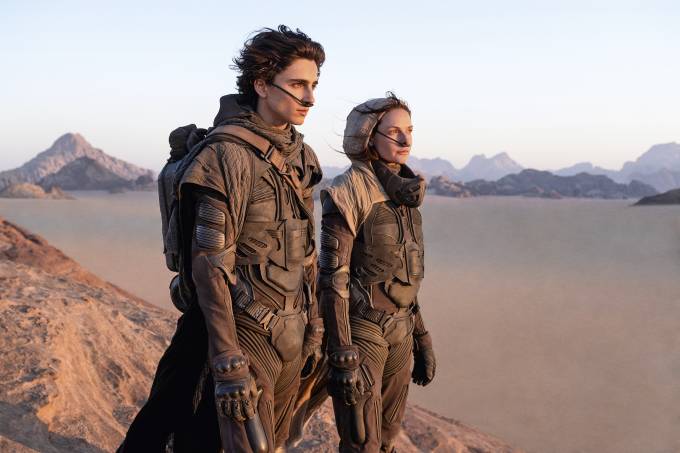What Attack of the Dogs (twelve nominations) would come in front and Dune (ten) would follow on his heels, it was already known. It was sort of decided, too, that Will Smith would be back in the race after twelve years for King Richardand that Denzel Washington would be singled out by Macbeth’s Tragedy while the film itself would kind of be snubbed (the question is whether this time Denzel will be able to disguise his annoyance in case the favorite Benedict Cumberbatch is really called to the stage). In recent days, the experts’ calculations also took for granted that Penélope Cruz had gathered the necessary impetus for a spot in the best actress category in Pedro Almodóvar’s Parallel Mothers, and that Spencer’s Kristen Stewart, surprisingly left out of the Syndicate dispute of the Actors, would now see the injustice corrected (unfortunately for Lady Gaga, who, yes, is the best thing about Casa Gucci but no, in fact, she doesn’t deserve to be among the competitors). In fact, there is virtually no indication – or lack thereof – in any category that constitutes unforeseen. Even the (shocking) absence of Denis Villeneuve de Duna among the nominees for the directing award and the (well-deserved) presence of Ryuzuki Hamaguchi and his Drive My Car on the list are the kind of amazement that the Academy is as regular as clockwork: extolling the film while turning one’s back on the director is something of a tradition – and, although it is more recent, the practice of chasing an established title on the premium festival circuit to avoid embarrassment is also already established. In other words: an absolute lack of surprises, bad or good, is all the Academy has managed to provide with its call for the 94th Academy Awards. If this gives her a sense of security, warn yourself that she is probably delusional. There are a wide range of reasons to be apprehensive – starting, and just starting, with the meager ratings of last year’s ceremony, by far the lowest in the entire history of Oscar broadcasts (any episode of Yellowstone earns more than 10 million of spectators who followed her in the United States). It wasn’t just the restrictions imposed on the party by the pandemic that were responsible for the fiasco: the public’s disinterest has been hovering closer and closer to the Oscars. It means little, for example, to millennials and generation Z, because they are naturally averse to anything institutional or statutory and because their preferences are almost never contemplated. The regulatory nomination in the special effects category for Spider-Man: No Return Home, which with its 1.8 billion dollars in revenue saved the 2021 box office from complete dismantling, does not solve anything for this part – immense, by the way. — from the audience, and the fact that the Academy apparently didn’t even notice the existence of cult favorites from the last year, like Pig and The Legend of the Green Knight, helps even less. It has been more than a decade since this feeling of disconnection with the public, and not just the youngest, became blatant, but the 22 months of the pandemic have worsened it to a point that announces itself of no return. Social networks, today, allow “elections” of favorites group by group, niche by niche, and their influence has overlapped that of traditional awards – which, moreover, suffered a blow with the misfortune of the Golden Globes, in a effect that spills over the credibility of all of them. In this period, too, streaming became the first option for a large part of the audience, contributing to emptying the collective experience of the movie theater – an essential component of the enthusiasm around a title – and blurring the distinction between film and series to many viewers (“why doesn’t the Academy reward series?” is one of the frequently asked questions this writer receives, in a testament that the public feels that competition in these terms is marmalade). Proof of the strength of streaming is that, since the animation Encanto became available for free to Disney+ subscribers, recently, the song We Don’t Talk About Bruno exploded in popularity and became a phenomenon that not even Disney itself can explain. Oscar, of course, missed the bandwagon: it was average, which is where he feels comfortable, and indicated the much more conventional and mellow Dos Oruguitas. Continues after advertising
